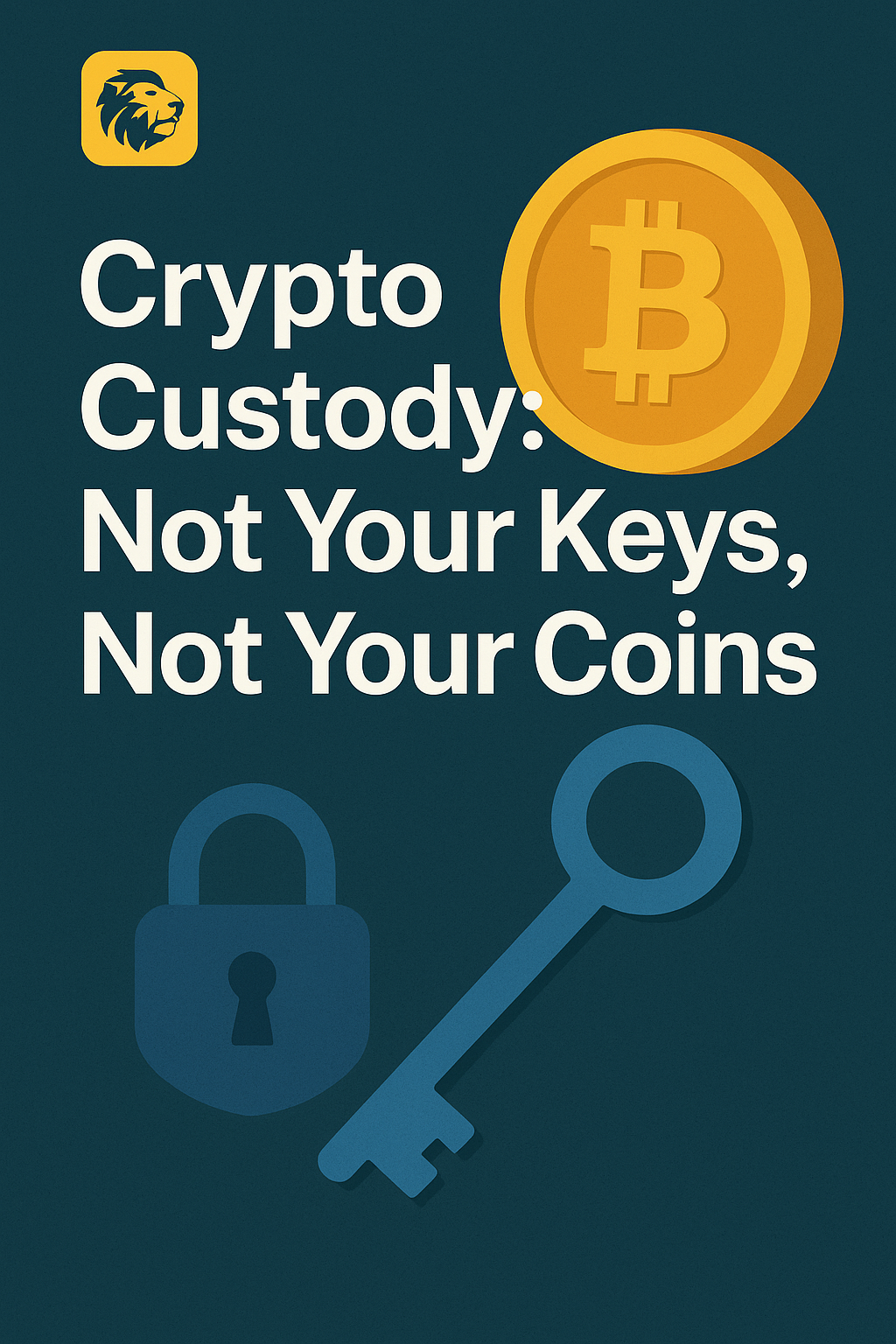
One of the oldest but most important rules in the crypto world is: “Not your keys, not your coins.” But what does this actually mean – and why is it so crucial for investors?
The Role of Private Keys
Every cryptocurrency is built on blockchain technology, and access to your coins is controlled by a private key. Whoever holds this key controls the funds – whether that’s the rightful owner or a third party. On many centralized exchanges (CEX), the platform itself holds the private keys on behalf of its users. While this is convenient, it comes with risks: if the exchange gets hacked or becomes insolvent, users could lose access to their coins.
Self-Custody vs. Third-Party Custody
Self-Custody (Wallets): You take full responsibility for securing your private keys. This maximizes control and independence, but also requires discipline when it comes to backups and password management.
Third-Party Custody: Banks or specialized providers store your coins. This reduces the risk of personal mistakes but shifts trust toward external custodians.
Why It Matters
With institutional investors entering the market and Bitcoin ETFs gaining traction, crypto custody is becoming one of the hottest topics in finance. While retail investors need to learn how to handle wallets, institutions are betting on regulated custody solutions.
👉 What do you prefer: full control or convenient custody?
